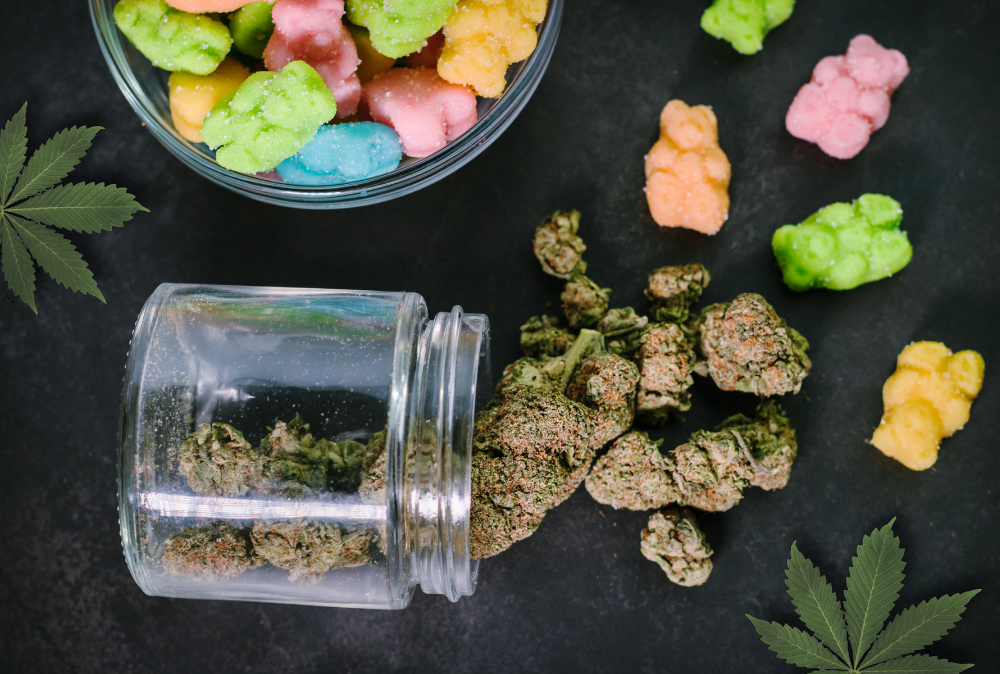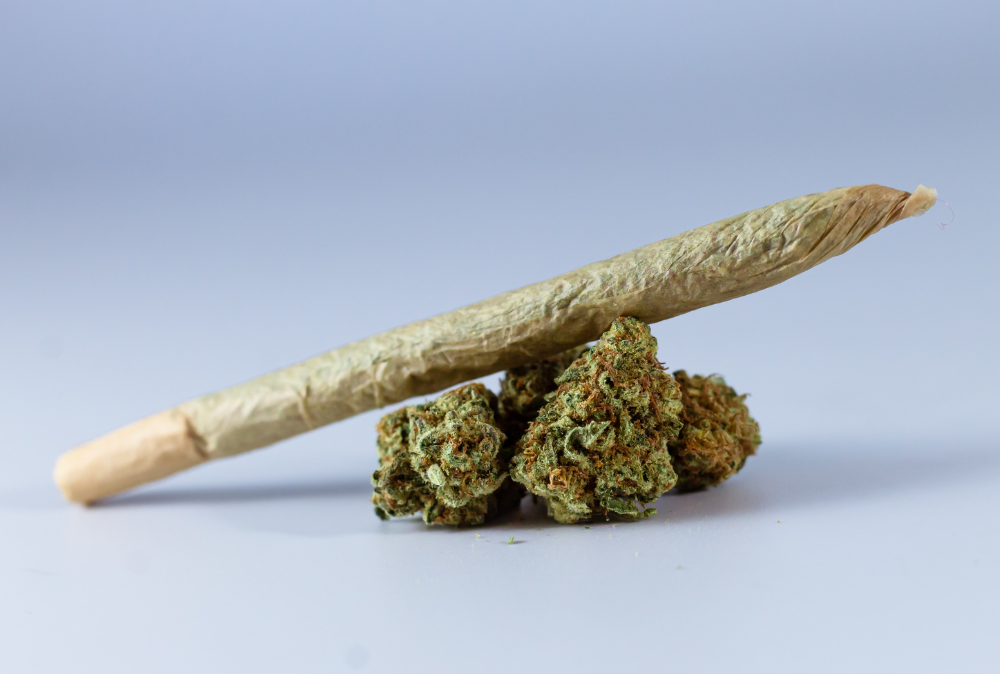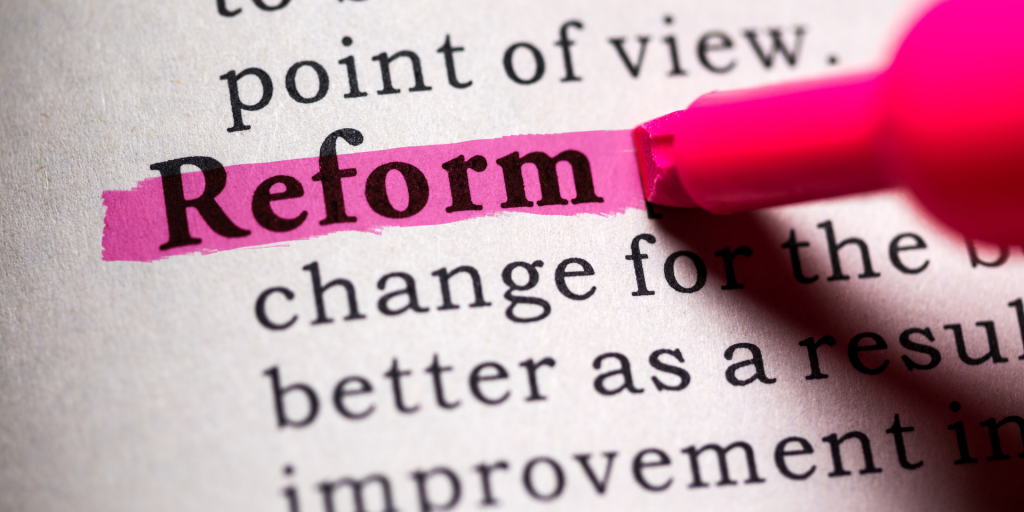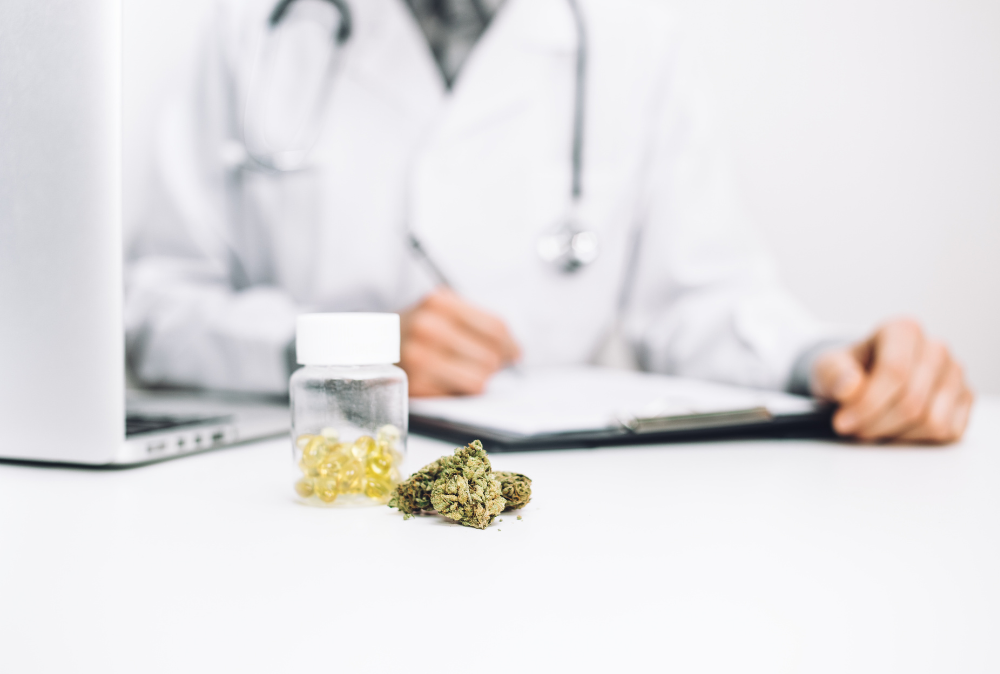
As the nights grow longer and the jack-o’-lanterns start glowing, there’s no better time to embrace the spirit (and spirits) of Halloween than with some hauntingly good cannabis. Whether you’re gearing up for a ghoulish costume party, a horror movie marathon, or just chilling with your favorite candy stash, the right strain can take your spooky season from boo to bliss.
Here are five fan-favorite strains that fit right in with the Halloween vibe — from eerie names to enchanting effects. Let’s take a haunted stroll through the cannabis graveyard and see what these strains have to offer.
Don’t let the sinister name scare you off — Jack the Ripper isn’t out for blood, just bad moods. This citrusy sativa is a sharp, energizing strain that slices through stress and fatigue like a pumpkin-carving knife.
A cross between Jack’s Cleaner and Space Queen, Jack the Ripper delivers a high that’s fast-hitting and cerebral, perfect for sparking creativity or keeping you animated through the night’s festivities. Expect notes of lemon zest, pine, and a little earthiness that feel as crisp as a fall morning.
If you’re looking to stay lifted while working on your costume, dancing at a Halloween bash, or telling ghost stories around the fire, this “killer” strain is a frightfully good choice.
Hop aboard the Ghost Train Haze express — next stop: the Twilight Zone of your imagination. This potent sativa-dominant strain is known for its spectral strength, boasting THC levels that can soar over 25%.
With a lineage of Ghost OG and Neville’s Wreck, Ghost Train Haze delivers an intense, heady high that can border on psychedelic. Expect a rush of euphoria, focus, and energy — the kind that makes your Halloween decorations seem extra spooky and your candy taste extra sweet.
The flavor is hauntingly delicious too: sweet citrus and floral notes with a touch of spice, like a witch’s brew bubbling with mystery. A little goes a long way with this ghostly powerhouse, so tread lightly if you’re not used to such strong spirits.
If Halloween had an official strain, it might just be Kandy Kush. This hybrid is as sweet and balanced as its name suggests — the perfect treat after a long night of frights.
Born from OG Kush and Trainwreck, Kandy Kush blends the best of both worlds: the body-melting relaxation of an indica with the happy, giggly high of a sativa. It’s the ideal strain for winding down while watching scary movies or munching on leftover trick-or-treat candy.
Flavor-wise, it’s pure indulgence — think sugary citrus with a hint of earthy spice. The aroma alone can make your mouth water faster than spotting a full-size candy bar in the trick-or-treat bowl.
Few strains have the legendary reputation of White Widow, and she’s earned her spooky-season street cred. This frosty, crystal-coated hybrid has been ensnaring cannabis lovers in her web since the 1990s, famous for her balanced high and mesmerizing appearance.
The Widow’s effects hit fast — a burst of euphoria and creativity followed by a mellow, body-soothing calm. It’s perfect for social gatherings where you want to stay chatty and engaged without slipping into couchlock.
Her aroma is earthy and pungent with a whisper of spice, and her snow-white buds practically glow under blacklight — a perfect aesthetic for your haunted hangout.
Whether you’re hosting a Halloween party or crafting some eerie DIY decorations, White Widow will keep you floating on good vibes all night long.
Last but not least, let’s summon Durban Poison, a pure sativa that’s anything but sinister. This South African strain has been called the “espresso of cannabis” — delivering an uplifting, clear-headed high that’s ideal for daytime Halloween adventures.
Known for its sweet, spicy, and sometimes anise-like aroma, Durban Poison is perfect for when you want to carve pumpkins, bake fall treats, or get your spooky decorations just right without losing focus. It’s the strain that keeps you energized and smiling — like the ghost of good vibes come to life.
Plus, with its long, resinous buds, it looks as striking as it feels — a monster hit in any stash jar.
Halloween is all about atmosphere — the eerie glow of candles, the sound of crunching leaves, and maybe, the sweet smell of your favorite strain in the air. The right cannabis can help you lean into the season’s magic, whether you’re out haunting the neighborhood or cozying up indoors with horror flicks and friends.
So grab your candy, light your cauldron, and let these Halloween-themed strains add some high-spirited fun to your festivities. Stay safe, stay spooky, and remember — no need to fear the reaper when you’ve got Jack the Ripper in your grinder.
For help getting a Medical Cannabis Card in Utah, see if you qualify or schedule an appointment.

If you’re exploring cannabis for pain relief, it can feel a little like walking into a candy store blindfolded: so many options, so many names, so many promises. The good news? With a bit of gentle exploration and attention to your body’s responses, you can find a strain that works for you. In this article, we’ll walk through how to think about pain, how different folks respond differently, and how to use cannabis thoughtfully. Let’s break it down together.
Before you pick a strain and hope it works, it helps to know the basics of how cannabis interacts with your body. The term cannabinoid refers to the chemical compounds in cannabis that interact with your endocannabinoid system (ECS). The ECS helps regulate things like pain perception, mood, inflammation, appetite, and sleep. Because of that, when you’re dealing with pain, the cannabinoids in your chosen strain are your key players.
When you look at a strain label, you want to pay attention not just to THC (which gets a lot of attention) but also to other cannabinoids like CBD (which tends to be less intoxicating) and even lesser-known ones like CBG, CBC or THCV, depending on what your body seems to like. Your unique biology, your pain type, your tolerance, and your lifestyle matter.
You’ve probably heard the shorthand of “sativa and indica” when it comes to cannabis: sativa for uplifting, indica for relaxing. But it’s not quite that simple anymore. Because breeding, hybrids, and terpene profiles have blurred the lines, the “sativa/indica” label is more of a starting point than a guarantee. Some folks with chronic pain might benefit from an indica-dominant strain because it helps them relax muscles or unwind tension; others might prefer a sativa-dominant strain if they want pain relief and to stay active or avoid feeling sedated. What matters most is how your body and mind respond, rather than only the name on the label.
If you take away one thing from this article, make it that pain isn’t one single thing. There’s acute pain (say a recent injury) versus chronic pain (long-term), and there’s the emotional / mental overlay (stress, anxiety, sleep trouble) that often comes along for the ride. So, when you’re looking for your best strain, think: “What kind of pain am I dealing with? What do I want to get out of this experience?”
If your pain is muscular, tension-based, or keeps you from relaxing, you might lean toward a strain with more CBD + relaxing cannabinoids and perhaps an indica-leaning profile (or a hybrid with indica traits). Some people report better results when they feel comfortable and calm rather than “zoned out.”
If your pain is tied to movement, or you want relief without feeling totally sedated, then a sativa-leaning strain (or a hybrid that offers balance) might suit you. The interplay of cannabinoids + the strain’s broader profile (terpenes, effects) will influence whether you feel energized, clear-headed, or deeply relaxed.
Finding the right strain is less “one and done” and more “experiment, adjust, repeat.” We recommend a gentle, respectful approach: try a small dose, note how your body feels over the next few hours, how your mood is, how your sleep is, and how the pain itself shifts. Keep a little journal or mental log: which strain, which dose, what kind of pain, what result. Over time you’ll start seeing patterns.
Because your body’s response to the cannabinoids (and the other compounds in the plant) can evolve — tolerance changes, pain changes, etc. — you’ll want to revisit what you’re using from time to time. Adaptability is key.
Beyond just “which strain,” you’ll want to factor in mode of consumption (smoking, vaping, edibles, tinctures). Each has different onset, duration, and intensity of effect, which might matter depending on your pain schedule. If you need relief quickly (say flare-ups), something inhaled might make sense; if you’re planning for overnight or sustained relief, edibles or tinctures might be better.
Also consider your non-cannabis habits: sleep, hydration, nutrition, and stress all influence how you feel pain and how well the cannabinoids and other plant compounds will work. Think of cannabis as one part of a broader self-care puzzle, not a magic bullet by itself.
So, in plain terms: start with a strain that aligns roughly with your needs (for example: indica-leaning if you’re focused on relaxation + pain relief, sativa-leaning if you want relief + clarity/energy). Check the cannabinoid profile, start with a small dose, and observe how you feel. Adjust dose/strain/mode if you’re not seeing the results you hoped for.
Over time your “best strain” may change, and that’s totally okay. It’s best not to think of “one perfect strain forever” but “which strain works best right now for my body, today.” That mindset takes off a lot of pressure and lets you be curious and flexible.
For more canna-tips, catch up on episodes of Discover Marijuana on YouTube or see if you qualify for a Medical Cannabis Card here.

Cannabis has been a part of human culture for millennia, valued for its medicinal, industrial, and recreational uses. Yet, for the past 100 years, it has been largely prohibited worldwide. 2025 marks a century since the start of cannabis prohibition, a milestone that has shaped its complex legal & social history. Let's recap.
The journey toward cannabis prohibition began in 1925 at the Second International Opium Convention in Geneva. This treaty, led by the United States, introduced international controls on cannabis by classifying its extracts and tinctures as controlled substances. While the convention allowed for medical and scientific use, it marked the beginning of a global trend toward cannabis regulation.
Simultaneously, cannabis was included in the International Pharmacopoeia, acknowledging its medicinal properties but also subjecting it to strict controls.
In the United States, cannabis prohibition gained momentum in the early 20th century. Between 1914 and 1925, 26 states enacted laws restricting cannabis use, often fueled by racial and xenophobic sentiments. The federal government took a significant step in 1937 with the passage of the Marijuana Tax Act, effectively prohibiting cannabis nationwide.
The 1950s and 1960s saw increased enforcement, with harsh penalties for possession and use. The "War on Drugs" in the 1980s and 1990s further intensified criminalization, disproportionately affecting communities of color.
The late 20th and early 21st centuries witnessed a shift in public perception and policy. California led the way in 1996 by legalizing medical cannabis. Over the next few decades, more states followed suit, and public opinion became increasingly supportive of legalization.
Despite state-level reforms, federal prohibition remained in place. In 2025, a U.S. appeals court upheld the federal ban, citing Supreme Court precedents. However, the ongoing tension between state and federal laws highlighted the need for comprehensive reform.
As we reflect on a century of cannabis prohibition, the landscape is changing. The Centenary of Cannabis Prohibition in 2025 serves as a reminder of the need for continued advocacy and education. The journey toward legalization is ongoing, and the next chapter is yet to be written. Sound off in the comments with what you think is coming next for cannabis! And as always, if you need help getting access to legal Medical Cannabis in Utah, let us help you get a card.

Cannabis laws have come a long way in the U.S., but there’s still a lot of work to do — and it’s no different here in Utah. If you're passionate about expanding access to cannabis, changing outdated laws, or just making sure people get the facts, good news: you don't have to be a lawyer or politician to make a real difference. In fact, regular folks like you are exactly what the movement for marijuana reform needs.
Here’s a simple guide to how you can get involved and help drive change right here at home.
Before you jump into advocacy, it's important to know what’s already on the books. Right now, Medical Cannabis is legal in Utah thanks to The Utah Medical Cannabis Act (House Bill 3001), which passed back in 2018.
But recreational cannabis? Still illegal. And if you get caught with marijuana outside the medical program, you could be facing some serious penalties. If you need help getting a Medical Marijuana Card in Utah, we can help.
If you want to stay in the know, UtahMarijuana.org always tries to keep up with the latest canna-buzz and share regular updates on what’s happening around cannabis laws in our state.. Subscribe to our newsletter below to stay informed.
You’re stronger when you’re part of a team — and lucky for you, Utah has some great advocacy groups already doing the hard work, like Utah Cannabis Association and Utah Patients Coalition. They host rallies, community meetings, and educational events where you can learn more, meet like-minded people, and find ways to volunteer.
It might sound intimidating, but reaching out to your local reps is super important (and easier than you might think!). Here’s a quick rundown:
A lot of people in Utah still have some outdated (and straight-up wrong) ideas about cannabis. One of the best things you can do is help educate your friends, family, and neighbors.
Here’s how:
Every conversation helps shift public opinion a little more.
Who we elect matters — a lot. Find out where candidates stand on cannabis issues and support the ones who back marijuana reform.
Sometimes the fastest way to real change is through ballot initiatives — and Utah already has a success story with this. Our current Medical Cannabis law started because regular citizens collected signatures and put it directly on the ballot.
Next time an initiative for marijuana reform comes up, you can:
Let’s be real: change doesn’t happen overnight. You might hit some roadblocks or run into people who just don’t want to listen. Stay positive. Stay persistent. Every letter you send, every conversation you have, every event you attend — it all adds up.
And remember: Utah has already come a long way. Thanks to people just like you, more progress on marijuana reform is totally possible.
If you care about safe access, fair laws, and cannabis education, you already have what it takes to be a great advocate for marijuana reform. You don’t have to know everything — you just have to care enough to show up.

Attention Deficit Hyperactivity Disorder (ADHD) affects millions of people worldwide, making it difficult to focus, control impulses, and stay organized. While traditional treatments like prescription medication and behavioral therapy are widely used today, some turn to cannabis as an alternative. But does marijuana actually help with ADHD symptoms, or does it do more harm than good? Let’s dive into the latest research and personal experiences surrounding marijuana and ADHD.
People with ADHD often have lower dopamine levels, which can contribute to difficulties with attention, motivation, and impulse control. Some research suggests that cannabis, particularly its active compounds (called cannabinoids) THC and CBD, may interact with the endocannabinoid system in a way that regulates dopamine levels. Some individuals have reported feeling calmer, more focused, and less anxious when using cannabis.
People with ADHD may use marijuana to combat restlessness and hyperactivity. While anecdotal evidence is strong, scientific research is still inconclusive. (The federal classification of cannabis makes research very hard to come by.) Some studies suggest potential benefits while others warn of possible unintentional cognitive impairments.
The scientific community continues to debate the effects of marijuana on ADHD. While some studies indicate that cannabis use can help with hyperactivity and impulse control, others highlight potential unwanted side effects like memory impairment and decreased motivation.
One 2023 study notes that while marijuana may provide short-term relief and a temporary dopamine hit, long-term use could lead to dependency or worsen inattention, hyperactivity, and impulsivity. The study states that for us to understand how cannabis might affect ADHD treatment, we need to investigate the endocannabinoid system further.
ADHD, like all mental health disorders, presents differently in everyone. While some individuals swear by marijuana for ADHD symptom management, there are several potential risks to consider.
Ultimately, the decision to use marijuana is a personal one to be made with careful consideration, ideally under the watchful eye of a medical provider. When it comes to ADHD, some individuals find relief, while others experience unwanted side effects. If you’re considering using cannabis to treat your ADHD, chat with a medical provider beforehand. You’ll want to completely understand the risks and benefits, as well as have someone to help you monitor interactions.
As research increases and access expands, we’ll gain a clearer understanding of how marijuana use affects ADHD. Until then, stay informed and cautious.

It is no secret that the leading complaint among people seeking Medical Cannabis Cards in Utah is pain. In fact, pain is the leading motivator for Medical Cannabis consumption across the country. So it's understandable that a patient would want to know if the drug could help with their particular type of pain. One we hear a lot about is treatment for migraine pain.
Migraine headaches are among the most painful. Unfortunately, pain isn't the only symptom. Migraine sufferers also complain of light and noise sensitivity, nausea, and even auras (visual disturbances). A migraine headache is not a pleasant experience.
The question for many is whether Medical Cannabis can alleviate or prevent the symptoms. We don't know about prevention, but a number of studies look promising for symptom alleviation.
Have you ever wondered how people used cannabis before it was outlawed in the 1970s? We did a little digging and discovered some interesting things. For instance, there was a period of roughly 100 years – between 1848 and 1948 – when cannabis was a preferred medication for migraine.
Johns Hopkins medical school founder William Osler was reported to have used cannabis for migraines. Likewise for England's renowned neurologist William Gowers.
Unfortunately, cannabis has never undergone the type of clinical scrutiny necessary to convince the FDA and DOJ that it is an effective medication. Most of the studies conducted so far have been observational studies, meaning researchers gathered data by conducting surveys.
Despite being observational, the small number of studies we can still look at are promising. One study published in 2019 showed that almost half of the migraine patients who were treated with THC or CBD reported less severe migraine pain following treatment. There were some downsides, including THC tolerance that resulted in rebound headaches, but the patients in that study were self-medicating. We might be able to achieve better results through prescriptions managed by doctors.
Moving on to another study published in 2020, researchers discovered that some of their subjects responded to cannabis while others did not. Among those that did, they reported 50% fewer migraine attacks than the nonresponsive group. We are guessing anyone suffering from regular migraines would welcome the opportunity to cut their attacks in half.
The data we currently have about cannabis as a migraine treatment is promising, but not definitive. Would it work for you? We cannot say one way or the other. The best advice we can offer is that you sit down and talk it over with your medical provider. Tell your provider how you feel, how severe your migraines are, and why you think Medical Cannabis might help.
We at least know enough about cannabis to suggest it can be helpful for people dealing with chronic pain. The state legislature recognizes the same thing, which is why chronic pain has been on the qualifying conditions list since day one.
You might also be happy to know that acute pain was added to the list during the 2022 legislative session. Certain types of acute pain now qualify for Medical Cannabis as long as a few conditions are met. So if acute pain is something you are worried about, be sure to talk it over with your medical provider.
In closing, we just want to remind new readers that the state requires possession of a valid Medical Cannabis Card to purchase medications at a Utah pharmacy. We can help you get your card. Just make an appointment to see us at any of our Utah clinics.

Here at Utahmarijuana.org, we strongly encourage Medical Cannabis patients to work closely with their QMP (Qualified Medical Providers) and PMP (Pharmacy Medical Providers) to determine the best possible dosage and delivery method. We also encourage patients to continually consult with their providers throughout the Medical Cannabis journey. This post will explain why.
For starters, the whole point of Utah's Medical Cannabis program is to give patients access to an alternative medicine. And if cannabis is a medicine, it should be treated like one.
Every other prescription medication a person takes is prescribed by doctors who have a specific goal in mind. It is dispensed by pharmacists who know what effect the drug will have on the patient.
Patients routinely consult with their doctors and pharmacists to make sure they are using their prescription medications the right way. Why would it be different with Medical Cannabis? Things shouldn't be any different. That leads us to the number one reason patients should work closely with their QMP and PMP: the risk of overconsumption.
To date, there have been no reports of cannabis users overdosing and dying from too much THC. Numerous studies have failed to identify a lethal dose of the cannabinoid for human beings. But all that said, it is possible to use too much THC during a given amount of time. In other words, overconsumption is possible.
When overconsumption occurs, it can result in unpleasant symptoms that can include:
In some cases, people experience confusion, paranoia, and hallucinations. They are the exception to the rule. For most people, overconsumption leads to the more prominent physical symptoms. They are not life-threatening, but they can be awfully scary.
THC overconsumption can make you feel bad enough that you want to run off to the emergency room. You will recover and life will go back to normal. But what about the mental and emotional fallout? One bad experience could give you the wrong impression of THC. A wrong impression could dissuade you from using Medical Cannabis in the future, possibly denying you a treatment option that would have been otherwise helpful.
It is often said that Medical Cannabis is as much a journey as it is a medication. We don't disagree. Medical Cannabis is somewhat unique in the sense that we don't yet have enough science to actually come up with defined prescription standards similar to those that apply to things like antibiotics and blood pressure medications.
This ultimately leads to the reality that patient and medical provider need to work together to figure things out. It means that every new patient needs to go through a period of trial and error before homing in on the best delivery methods and dosages. Their PMP and QMP are hopefully there to help guide them through.
Knowing what we know about the Medical Cannabis journey and the potential for over consumption, we urge patients to always track their consumption. Make a record of when you use, how much you use, your delivery method, and how it made you feel. That information is invaluable to your PMP as they help you figure things out.
Although there is no known lethal dose of THC for human beings, over consumption is possible. The risk of consuming too much in too short a time is the number one reason for working closely with your QMP and PMP throughout your Medical Cannabis journey.

We are always on the lookout for new study data demonstrating whether Medical Cannabis is a truly effective medicine. We are happy to report that a recently released study out of Florida State University (FSU) seems to suggest that cannabis is a possible substitute for opioids as pain medications.
If subsequent studies find the same thing, we will not need to say just how big it will be. Anyone who has used opioid pain medications and had a bad experience would probably welcome an alternative painkiller. If that alternative is cannabis, then having more than three-dozen states with Medical Cannabis programs in place puts us ahead in the game.
The survey study asked some 2,100 participants about their use of both opioid medications and Medical Cannabis. Researchers gathered data on patients using cannabis to treat:
Not surprisingly, nearly 89% of the respondents said that medical cannabis consumption was "important to their quality of life." They said it was either "very" or "extremely" helpful in treating their conditions.
We should also point out that more than 60% of the respondents had been taking opioid medications prior to being offered Medical Cannabis. Some 79% were able to either reduce or completely eliminate the opioids.
All of that is good news, but we're not done yet. The survey also showed that:
The primary side effects reported by survey respondents included drowsiness, dry mouth, and increased appetite.
As far as observational studies go, this was pretty definitive. It's not like we're hovering on the border at 50-50. We are talking percentages in the high 80s which, under most circumstances, would amount to definitive proof. The only reason we cannot deem this study conclusive is its observational nature. We need clinical studies to do that.
Still, the study gives us a lot of confidence in helping patients who come to us with using Medical Cannabis to manage chronic or acute pain. While we're talking about it, let's discuss acute pain in more detail.
If you are not intimately familiar with Utah's qualifying conditions list, you should know that acute pain was added during the 2022 legislative session. Acute pain can now be treated with Medical Cannabis under certain circumstances.
We will not get into the details here but imagine scheduling knee replacement surgery for later this year. As long as your medical provider was willing, and your circumstances met the conditions, you could utilize Medical Cannabis during your recovery as a substitute for opioids.
We think that's huge. Why? Because we have talked to a lot of patients who have come looking for their Medical Cannabis Cards because they were tired of the way opioids made them feel. Given the highly addictive nature of most opioids, recommending cannabis as a substitute for opioids seems like a no-brainer.
Thanks to the COVID-19 pandemic, the opioid epidemic has practically disappeared from our cultural radar. If nothing else, the FSU study is a reminder that the opioid epidemic still exists. It also provides compelling evidence that Medical Cannabis can be an amazingly effective tool in fighting the opioid problem.
If you are currently taking opioid meds and would rather find an alternative, make an appointment to visit any one of our clinics. We can help you obtain your Medical Cannabis Card so that you can take an honest shot at getting off those opioids.
We have been privileged to work with countless patients wanting to get their Utah Medical Cannabis Cards. In so many cases, these patients have tried other medications to treat everything from chronic pain to PTSD. They have chosen to turn to Medical Cannabis over other meds because those other therapies have not worked.
How about you? Do you use Medical Cannabis as a substitute for other meds? If so, you are not alone. Searching for alternatives to traditional prescription medications is a common theme among many of the patients we see. It also seems to be a theme consistent across the country; it is not confined just to Utah.
We did a little digging around and found a fascinating study published in November 2021. It showed that women were more likely to use cannabis in place of other prescription meds. The research was conducted as a survey study by The Cannigma.
They surveyed more than three hundred respondents about their prescription meds and cannabis habits. They discovered that 72% of the women reported using cannabis as a prescription med substitute. By contrast, only 55.5% of the men reported doing so.
Combining both groups reveals that 65% use cannabis as an alternative to other prescription meds. That is a clear majority no matter how you divide up the demographics.
One of the more fascinating aspects of the study is that it did not isolate Medical Cannabis users from their recreational counterparts. An entire cross-section of consumers was surveyed. That makes a difference with some of the other findings the survey revealed.
For example, Medical Cannabis users generally reported using it more than once per day. They also reported more frequent use days throughout the week. In a nutshell, those who use cannabis for therapeutic reasons tend to use more of it more often. No surprises there.
The Cannigma study confirms many of the things we have believed about Medical Cannabis for years. At the top of the list is the fact that a lot of patients finally turn to cannabis when other things don't work. They absolutely should.
At the risk of sounding pious, we believe that Western medicine has taken the wrong approach toward cannabis for far too long. Cannabis doesn't fit with Western medicine's narrative, so it gets ignored or outright vilified. How disappointing is that?
We often work with countless chronic pain patients who have tried everything their doctors recommended. They have tried OTC pain medications and stronger opioid prescriptions. They have tried physical therapy, lifestyle changes, dietary changes, etc.
For many of them, Medical Cannabis is a measure of last resort. That's not the way it should be. Medical Cannabis should be on the table as a treatment option from the very start.
We are happy to say that we have seen some impressive results among many of our patients. For example, we have seen lots of reports of patients completely giving up their prescription opioids after getting into a stable Medical Cannabis regimen. If you're looking for a way to measure the success of cannabis therapy, freeing people from the clutches of opioids would be a good place to start.
As for why women are more likely than men to use Medical Cannabis as a substitute for other prescription meds, there is no clear answer. It could be that women are just more willing to try alternatives. Who knows? The fact is that the majority of Medical Cannabis patients have turned to it as a substitute for other therapies. That's what's important.